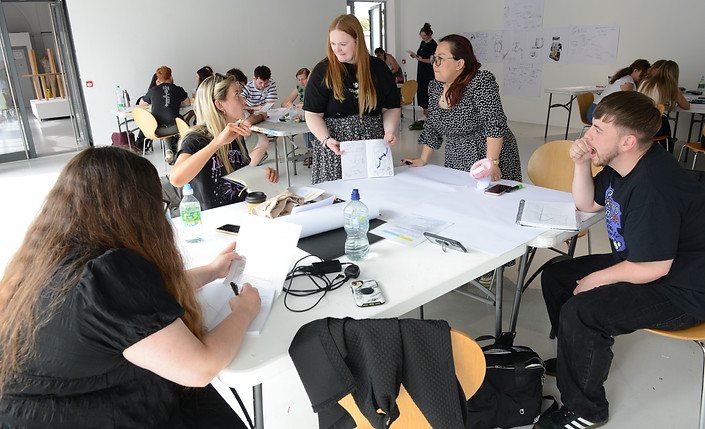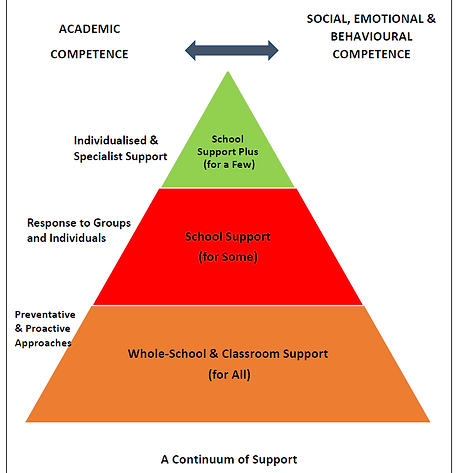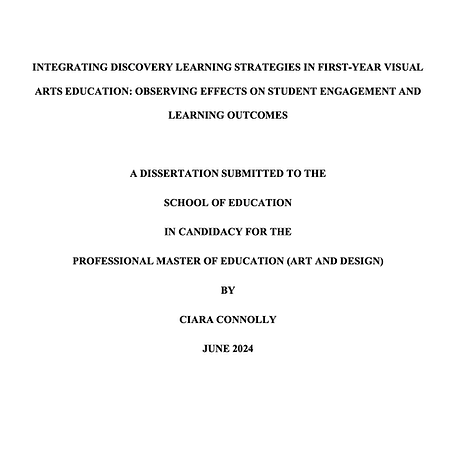
Ciara Connolly Professional Portfolio

Research
Research enables artists and teachers to contextualise their visual responses and interpretations of the world. In addition, theorising your practice in the classroom allows educators to become more aware and critical of their methodologies. Throughout the PME programme, academic writing was held in high regard, and research investigations were completed in sociology, history and philosophy, psychology, curriculum, and assessment and the change Lab experience. I recently completed a research project in the subject area of Discovery Learning. Below you can see a sample of this research.
"Going beyond the information given" - Jerome Bruner
Selection of Essays
History and Philosophy
This essay discusses recent changes to Ireland's special education needs (SEN) program and the significant discussions they have sparked. The essay focuses on the history of special education within an Irish context and investigates the changes brought about by various acts such as the Equal Status Act 2000-2015, the Education for persons with special education needs (EPSEN) Act 2004, the Disability Act 2005, and the UN Convention on the Rights of Persons with Disabilities. Special needs include cognitive, physical or sensory, emotional and behavioural, and speech and language difficulties. The essay highlights that each child has individual strengths, personalities, and experiences, and particular disabilities impact differently on individual children. The main paragraph discusses the changes in Ireland's special education program from the 1960s to the mid-1980s and how the integration of children with special needs into mainstream schools began to influence Irish educational policy. The essay concludes by stating that changes to the special education program have been made to ensure that children with disabilities are entitled to equal treatment in education.

Research Dissertation
This study explores the impact of discovery learning strategies on students' engagement, confidence, and creativity within a first-year art class. The research utilises a qualitative, action research methodology to gather observations and data, and the findings suggest that integrating discovery learning within the visual arts, specifically within the context of 3D sculpture, improves students' engagement and understanding. The research concludes that discovery learning can contribute to a meaningful and student-centred educational experience and suggests further study to establish the reliability of the findings and to extend the duration of unit of learning (UOL).

Dissertation
Psychology of Education
Using Jerome Bruner's Theory' in the art classroom.




